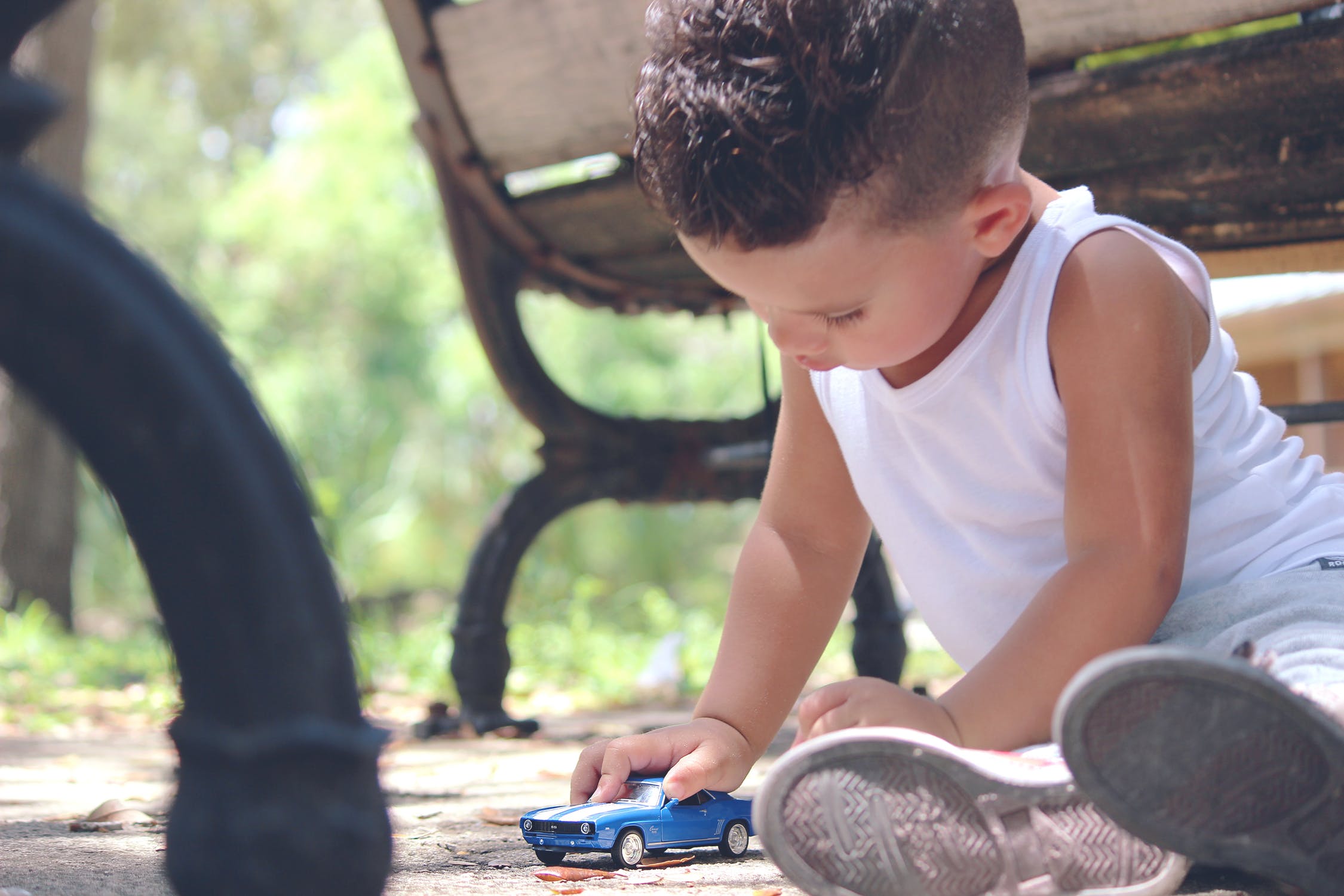Opportunities for the next generation of sports stars, business leaders and innovators are dwindling as a result of a lack of imaginative playtime
Opportunities for the next generation of sports stars, business leaders and innovators are dwindling as a result of a lack of imaginative playtime – experts have claimed.
Futurist, Mark Stevenson, has predicted children might find themselves unable to develop certain aspects of innovative thinking and creativity because of an absence of ‘free play’, which he identifies as unscheduled playtime.
He predicts the next generation will be deprived of radical innovators as scheduled and structured playtime doesn’t allow little ones to unleash their creativity and full potential.
Mark spoke after a study of 2,000 parents by Petits Filous found one in five kids’ schedules are brimming with activities and clubs leaving little time for imaginative play.
The research also revealed eight in 10 parents recognise the benefits of imaginative play.
Six in 10 said ‘free play’ inspires creativity, with a quarter agreeing it improves focus, and more than a third said it improved children’s cognitive ability.
Mark Stevenson said: “This is about reclaiming one of the bedrocks of creativity and innovation – free play.
“From our neurological development through to our ability to handle complexity and change, play is a foundation that, if taken away, severely limits our abilities and potential.
“We need a generation of radical innovators and we won’t get them if we curtail their creativity from childhood.
“Reclaiming play, therefore, is one of the most crucial steps we can take in re-imagining ourselves for the future.”
Despite nearly a fifth of children preferring to sit down with a tablet over playing freely, the study also found modern children ARE still content to use everyday household objects as toys.
Millions of youngsters still find pleasure in playing with packaging, pipe cleaners and yoghurt pots.
In fact, parents reported that nearly half of children would say the humble cardboard box is their favourite playtime object from around the house.
Forty-four per cent love nothing more than sitting down with paper and pens, and even lolly sticks, crafty items and clean yoghurt pots made the list.
To help give children more opportunity for free play, Petits Filous has partnered with Amazon Pantry to turn 200,000 boxes into a chance to make believe this summer – www.amazon.co.uk/adlp/petits-filous.
The collaboration aims to inspire UK parents and caregivers to pause before recycling what could be a crucial aid to their children’s imaginative play and development; the humble cardboard box.
Mark added: “Children (like most of us) learn best within a social context.
“A couple of kids creating a rocket out of a cardboard box is far healthier developmentally than any ‘learning game’ on a tablet.”
The benefits of imaginative play see 88 per cent of mums and dads joining in when their child extends an invitation.
These requests are often to be part of a game, to play a character in a fantastical, imaginary world or to build something.
One quarter of lucky parents also find themselves being transformed into their child’s noble steed or some other mode of transport during playtime.
Mark Brown, UK&I Marketing Director for General Mills & Yoplait, said: “At Petits Filous we believe a little less structure and a lot more play is crucial for helping kids learn more about the world, and themselves.
“We also know that with schedules – for work, school and hobbies – forever needing to be juggled, finding time for free play can be a challenge.
“It’s concerning that opportunities for imaginative play are being eroded, which is why we commissioned ‘The Free Play Survey’, which we’ve used to inform a report into ‘The Future of Imagination’.
“Co-authored by expert futurologist Mark Stevenson and children’s charity the Institute of Imagination, our report sheds light on the UK’s understanding and appreciation of free play, as well as the ramifications of failing to facilitate it for our children, the economy and our future.”

